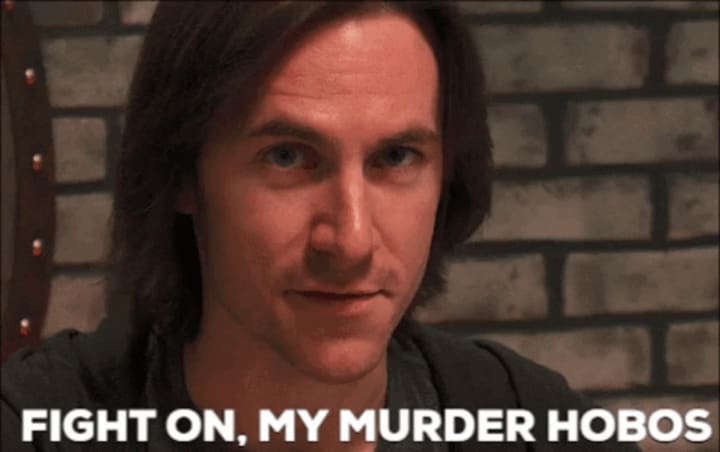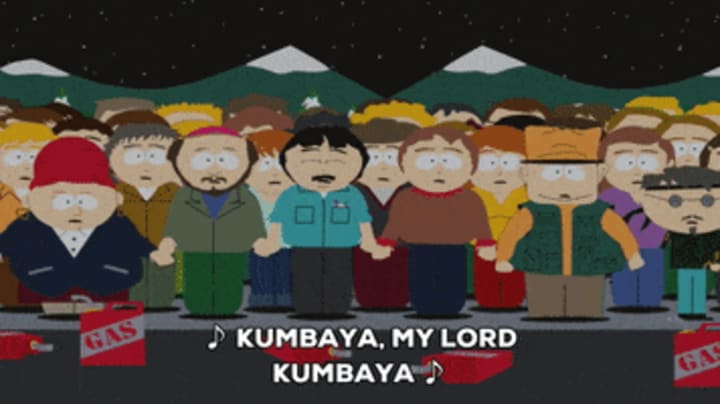The Economy Should Look Like Fallout
We Can Learn a Lot From Video Games

First, some clarification. I don't think the planet needs to suffer a nuclear war. I'm not advocating an economic system based on bottle caps as currency. Technology shouldn't be limited to vacuum tubes and aesthetics shouldn't be stuck in the 1950s. And God forbid anyone advocates war with China or rampant mutation from radiation and disease.

However, in a country plagued by massive income inequality, plutocracy and worship of the almighty dollar, a Fallout-style economy (or any economy based on a video game) would answer many of our society's economic problems.
In Fallout, you survive in a post-apocalyptic wasteland by scrounging scrap from the wreckage of civilization while earning and spending caps, the dominant currency in the game. Nuka-Cola was so ubiquitous before the war that the surviving bottlecaps are used as money.
(I always wondered why you didn't automatically earn a cap whenever you popped open and guzzled a scavenged Nuka-Cola. Seems like an easy fix there, Bethesda.)
Also, like most video games, you earn experience by progressing through the game, finishing tasks, reaching goals and, of course, killing things.

In Fallout (as well as almost every other RPG), you start out with virtually nothing. You're at level 1 with no gear, no experience and no wealth to speak of. The first twenty or thirty levels are all about acquiring stuff: getting better weapons and armor, building a camp, completing quests to develop your abilities and earning caps. Getting as many caps as you can early in the game is always the priority. Caps help you buy the best gear, build the best camp and develop the best settlement network. You never seem to have enough caps to fund your goals.
Until you suddenly do.
You build skills that let you make better gear than anything you can buy, and craft goods you can sell for profit. You not only have a tricked-out camp and workshop, you possibly have an entire network of settlements. You can even lose track of the main quest because you're having too much fun improving your settlements and making life after the apocalypse the best it can be.
At a certain point, caps don't matter anymore. You have enough. You no longer need to be the purified water magnate of Massachusetts or the chem lord of West Virginia. Your focus shifts from acquiring caps to self-improvement and improvement of life for others.

This paradigm shift happens subtly in Fallout. There's no point where you say "I'm done earning caps," but it eventually happens to everyone. You wonder if you really need to make another water collection run before you head off to kick the Institute to the curb. Your stack ranking of activities stops focusing on filling your pockets and starts prioritizing bettering your character or tackling the game's story. Sure, you could spend half an hour earning ten thousand more caps, but... why?
The country needs to shift its focus from getting more money to improvement, both self-improvement and societal improvement through education, art and elevated quality of life. Being wealthy shouldn't be a goal in itself. Endlessly getting more shouldn't be life's motivating factor.
But the question, of course, is how to make that happen.

I looked online for any analysis of how Fallout caps decrease in importance across levels, but unfortunately couldn't find anything. (This would take math kung fu and data access that I woefully lack.) However, for a completely subjective real-world opinion, I decided that $20 million, properly invested, would be all I need to take care of my worldly needs for the rest of my life. Food, housing (with enough for an extra lake cabin), transportation, utilities, health insurance, college for kids, and vacations several weeks out of the year. I wouldn't need a penny more. For the purposes of this experiment, we can double that ($40 million) to encompass people who really want to own a jet or private yacht, which I have a little less than zero desire to have. I'll use $40 million as a theoretical "I'm done earning caps" real-world equivalent. My time, if I somehow reached that level of wealth (which, barring a lottery win, isn't in the cards), would be devoted to creativity, self-improvement, philanthropy, volunteer work and leisure.
I'm not suggesting a "give everyone $40 million" plan. I'm also not suggesting a plan where all earning stops at $40,000,000.01. I'm proposing a paradigm shift where, at about the $40 million mark, growing monetary wealth brings diminishing returns. Obviously this is a tall order; Jeff Bezos, for example, is currently worth five thousand times my suggested $40 million. (Think about that for a minute.) So we need some pretty drastic measures, and probably at least a generation or two, to make such a shift.
The first step is to look back to the 1950s a la Fallout, specifically the92% top tax bracket (which in today's dollars would be for yearly earnings above $2 million). Coupled with a progressive (and high) wealth tax for existing reserves, it would dis-incentivize gaining wealth beyond our $40 million goal. We need to make it preferable to reinvest the money in higher pay/benefits for workers or expanding business rather than continually hiking executive pay. Below $40 million? No wealth tax, and tax brackets similar to today for yearly earnings under $2 million.
Entrepreneurs can still build substantial wealth (there are still people who grab millions of caps on Fallout), but diminishing returns make it less of an end goal than it is now.

All that tax revenue needs to go somewhere, so to complete the caps-to-experience transfer, government needs to invest in schools (free education through college), infrastructure (to answer the increased capital investment by business) and Universal Health Care. That way, health care is not tied to holding a job, and people aren't going bankrupt because of medical bills.
I would also suggest a "year of service" for all 18-year-olds. Everyone after High School spends a year in the military, Peace Corps, volunteering, working on infrastructure projects or other activities that 1) build trade skills through apprenticeship and 2) give everyone some skin in the American game. If America is going to provide everyone more, then everyone owes America more.
Lastly, I would institute a Universal Basic Income that scales (and eventually disappears) as wages from jobs increase.
I suspect this idea makes many people scream, if you're not screaming already. "Pay them to do nothing?!" You cry. "Do you want people not to have to work?!"
Yes. Yes, I want people not to have to work.
I want them to want to work. I want them to want to be the best coder, or manager, or carpenter, or executive assistant, or janitor, or burger flipper they can be. And I want pride to be attached to every job out there. That usually means the job earns higher pay or better benefits, which is an inevitable result of more people consuming, people having more money and executives with a dis-incentive to hoard.
Or maybe they don't want to work. They can choose to be a writer or painter or beat poet or musician (or slacker who plays Fallout all day). They still have money to spend to consume food and housing and necessities, supporting those who do work, and they have the freedom to do what they want with their lives.
(That number of people will be vanishingly small. Every UBI experiment has shown that, along with mental and physical health benefits, people still want to work and earn more money to improve their quality of life.)

Modeling our economy after Fallout doesn't address every ill out there. Scarcity still exists, so poverty is unavoidable. Inflation is always a risk, but it's a risk now anyway. Global warming is not addressed at all, though heightened education and demand will provide more brain power to solve it. And Lord knows actually doing these things would take political upheaval that would end up somewhere between the New Deal and the Civil War. But it does answer the question of how to remake society to address income inequality and knock money off its pedestal.
And all without a nuclear war or rampant mutation.
About the Creator
William Reid
Speculative fiction, fantasy and horror writer who also loves traveling, reading, cooking and taking care of his two kids. He grew up in Idaho and now writes of places as far away from his roots as possible from his home base in Seattle.






Comments
There are no comments for this story
Be the first to respond and start the conversation.